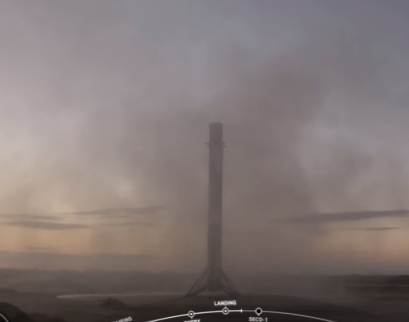They have it in for Elon Musk, and at all levels they move against him. Case in point…
SpaceX has requested a public safety determination from the Federal Aviation Administration (FAA) to allow the company to resume Falcon 9 launches after a recent rocket failure. The request comes in the wake of the Falcon 9’s upper stage experiencing a liquid oxygen leak during the Starlink 9-3 mission. SpaceX aims to return to launching as soon as possible, provided the FAA finds no risk to public safety.
SpaceX Seeks FAA Permission To Resume Launching Falcon 9 Amid Mishap Investigation.https://t.co/mKhxxB0Kn5
— SpaceX FrontPage (@SpaceXFP) July 16, 2024
The FAA received SpaceX’s request on July 15, and is now reviewing whether the anomaly involved safety-critical systems or posed any threat to public safety. If approved, SpaceX could potentially proceed with two upcoming human spaceflight missions. The first, scheduled for July 31, is the privately funded Polaris Dawn mission, which will include the first commercial spacewalk in high Earth orbit. The second mission, Crew-9, is set for mid-August and will transport astronauts to the International Space Station (ISS) for NASA.
NASA has been closely monitoring SpaceX’s investigation into the Falcon 9 failure. In a statement on July 12, NASA emphasized that crew safety and mission assurance are top priorities. SpaceX has been transparent with NASA throughout the investigation process, sharing information to help understand the issue and determine a path forward. NASA will provide updates on potential impacts to its missions as more information becomes available.
Spaceflight Now @SpaceflightNow
SpaceX submitted a public safety determination request to the FAA on July 15. If approved, it would allow SpaceX to resume Falcon 9 launches while the SpaceX-led investigation continues.. 7/17/2024 pic.twitter.com/JTUjF2CXr3— AllenZ (@rondaz_4) July 17, 2024
The Falcon 9 rocket, which has completed 364 missions with only two failures in 14 years, encountered a problem during its July 11 launch. The second stage’s Merlin Vacuum engine experienced an anomaly during a planned relight to raise the orbit’s perigee. Although the stage deployed the satellites, it failed to achieve a circular orbit and left the satellites in an eccentric orbit with a low perigee of 84 miles, less than half the intended altitude.
The FAA stated that the public safety determination request would be evaluated based on factors such as the nature of the anomaly, the performance of safety-critical systems, existing flight safety analysis, the safety organization’s performance, and environmental considerations. If the FAA determines there are no public safety issues, SpaceX may resume flights while the investigation continues, provided all other licensing requirements are met.
SpaceX asks FAA to resume Falcon 9 flights after anomaly during California launch https://t.co/0bT7i0BXfq
— News 6 WKMG (@news6wkmg) July 17, 2024
The FAA has not provided a timeline for its evaluation, reflecting the complexity of aerospace safety investigations. Human missions like Polaris Dawn and NASA’s Crew-9 are expected to receive additional scrutiny. The majority of Falcon 9 launches support SpaceX’s Starlink satellite internet service, but the rocket is also used for national security missions and high-profile government satellite launches.
Despite the recent failure, Falcon 9 remains the most frequently launched rocket today, with 69 launches so far in 2024. In comparison, China, the second-highest launching entity, has completed 30 successful launches this year.
Key Points:
- SpaceX has requested a public safety determination from the FAA to resume Falcon 9 launches after a recent failure.
- The request follows a liquid oxygen leak during the Starlink 9-3 mission, leading to an unsuccessful orbital circularization.
- NASA is monitoring SpaceX’s investigation, emphasizing crew safety and mission assurance.
- If the FAA finds no public safety risks, SpaceX could proceed with upcoming missions, including Polaris Dawn and Crew-9.
- Falcon 9, despite the failure, remains the most frequently launched rocket, with 69 launches in 2024.
Susan Guglielmo – Reprinted with permission of Whatfinger News



